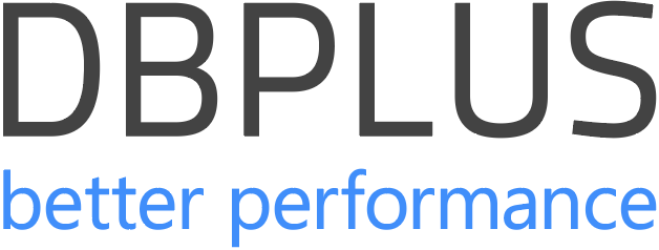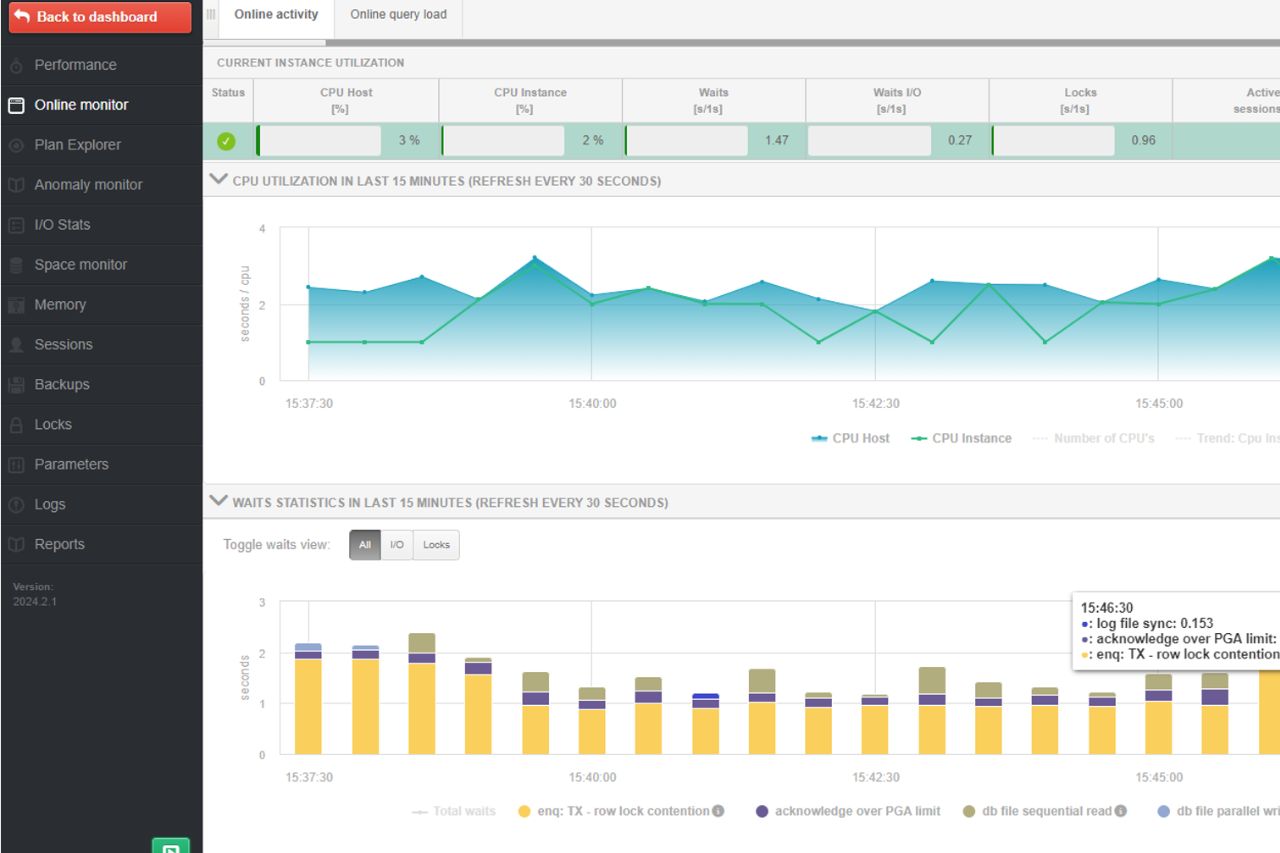08/08/2024
The Toughest Performance Challenges of SQL Server
SQL Server has a stellar reputation among the suits in the boardroom—lauded for its architecture and the ability to juggle massive datasets with the grace of someone who can juggle quite well. Yet, those who actually wrestle with the data, know a different story. They understand that SQL Server, like any towering giant, has its own set of quirks and foibles that can keep database professionals on their toes. Welcome to the performance challenges of SQL Server.
01/08/2024
That’s How Effective Query Monitoring Can Prevent Locks
In the complex ecosystem of SQL Server, performance issues can sometimes feel like detective work, especially when tracking down the elusive culprits behind system locks. This time, we’re exploring how ineffective queries (and poorly executed query monitoring) can grind operations to a halt, and how to identify the “how” and “why” behind the halt.
From scrutinizing load trends to dissecting lock histories and refining execution plans, we’re making sure that no stone—or should we say, no data block—remains unturned in our quest to keep SQL Server zipping along like a sports car rather than trudging like a pack mule.
25/07/2024
Choosing the Database Champion: PostgreSQL vs SQL Server Showdown
On one side of the arena stands PostgreSQL, the open-source prodigy born from academic innovation. It’s teeming with versatility and daring to push relational databases into new realms. Across the divide, SQL Server emerges from the titan Microsoft. And it’s a real behemoth woven deeply into the fabric of corporate IT infrastructure, boasting seamless integration and formidable power.
Are you rooting for the rebel with a cause or the knight in shining software?
18/07/2024
The Replication Dichotomy: Logical vs Physical Replication
There’s a peculiar habit among some database professionals occasionally to toss logical and physical replication into the same bin. One might as well say socks and shoes are the same because, after all, they both go on your feet, right? But as anyone who’s tried wearing socks in the snow can attest, similarities on the surface can hide a whole universe of differences between logical vs physical replication.
Blurring together logical and physical replication, or neglecting their differences can lead to inefficient data management strategies. Each method has its merits and ideal scenarios of use. Knowing just when to apply each one—understanding their unique roles in the spectrum of data management—helps avoid unnecessary workload, optimizes performance, and ensures data integrity.
11/07/2024
Breaking Down Distributed Databases: How Do They Work? When to Use Them?
Distributed databases—by storing data across a whole set of physical locations— allow organizations to manage data across multiple geographical locations with the semblance of a single unified system. What can companies gain with this choice?
16/07/2019
DBPLUS on “IT Tage” in Frankfurt
“Everything under one roof!” is the motto of the IT-Days 2019 from December 9th to 12th in the Cape Europa,…
03/07/2019
CIOs will talk about database performance
Optimizing database performance and matching IT architecture to real-time data processing will be the theme of this year’s edition of…
05/04/2019
DBPLUS at the mbuf congress in Karlsruhe
Congress is a meeting of nearly 200 member companies from the IT industry and a popular network platform. Mbuf is…
28/12/2018
SQL Saturday in Linz, Austria
SQLSaturday is an all-day conference and training event which is taking place Friday, January 18, 2019 for the sixt time…
14/12/2018
IT Tage 2018 in Frankfurt
We spoke during the Frankfurt IT Tage 2018 about SQL Query Performance Monitoring and Analysis under Oracle and Microsoft SQL…
02/05/2024
How can you speed up database read queries
Before getting into the technicalities of speeding up your database read queries, the first step is always to have a clear understanding of what exactly you need. This might sound straightforward, but inefficient queries often begin with uncertainty about the data requirements. Knowing exactly what information is necessary for your application or analysis not only helps in crafting precise queries but also prevents the database from retrieving extraneous information, which can significantly slow down performance.
25/04/2024
Data Observability
Too often when looking at the data we see just numbers – columns and rows that might seem meaningful on the surface but lack depth without proper context. Data observability changes this perspective. This approach is about understanding what the numbers really tell us about the health, accuracy, and vitality of our data systems.
Data observability isn’t just one thing – it’s an ability, or rather a way of monitoring your data’s health, accuracy, and overall usefulness. It’s what equips data teams with the essential tools they need in order to make sure that the data that’s driving business decisions is not only there but also high-quality, well-structured, and up-to-date.
18/04/2024
How Busy Was the Database Today? – Database Activity Monitoring Done Right
Trying to gauge the workload of a database on any given day can pose quite a challenge. A straightforward question supported by basic Database Activity Monitoring might not yield an insightful answer if it’s stripped of context, cluttered with arbitrary numbers, and missing crucial details.
So, what’s the right way to address this query?
11/04/2024
The Easy Way and the Hard Way to Optimize an Oracle Database
It may seem that the companies entangled in the web of Oracle and its ecosystem have a limited set of options when it comes to performance tuning. It’s either – pay for extra functionalities and navigate Oracle’s complex licensing, risking non-compliance penalties. This often leads to a conservative approach to optimization, stifling innovation due to the fear of overstepping licensing terms.
But do we always have to go the hard way?
There’s a much simpler route that doesn’t involve trembling with fear of clicking the wrong thing. That’s what we will be talking about today.
04/04/2024
Performance Monitor (Release 2024.1)
In April 2024, we published another version of the Performance Monitor for Oracle, Microsoft SQL Server, PostgreSQL, and SAP Hana…
16/09/2020
Actinium Consulting GmbH and DBPLUS enter into partnership
Actinium Consulting GmbH specializes in business intelligence and ERP. The software developments by DBPLUS for database optimization and real-time data…
31/03/2020
dbi services and DBPLUS enter into a partnership
Delémont, March 31, 2020 – dbi services has secured a partnership with DBPLUS, a software development company which specializes in…
16/10/2019
Partner for Performance representing DBPLUS at the DOAG Conference and Exhibition 2019 in Nuremberg
Partner for Performance representing DBPLUS at the DOAG Conference and Exhibition 2019 in Nuremberg You wish to become more familiar…
16/07/2019
DBPLUS on “IT Tage” in Frankfurt
“Everything under one roof!” is the motto of the IT-Days 2019 from December 9th to 12th in the Cape Europa,…
17/06/2019
DBPLUS expands partner network
Another companies from the CEE region joined the group of DBPLUS partners. As a result, DBPLUS Clients gain access to…
22/08/2024
Performance Monitor Changes in Version 2024.2—Part I: Online Monitor
Statistics can lie—” The only statistics you can trust are those you falsified yourself” This old adage attributed to Sir Winston Churchill rings especially true if you’re dealing with daily database monitoring. When data is only captured in 15-minute intervals, transient issues that can severely impact performance might slip through the cracks, unnoticed and unaddressed until they’ve already caused significant problems.
In the newest release of the DBPLUS PERFORMANCE MONITOR, we’re extremely excited to show you the solution that the new functionality brings to the table.
04/04/2024
Performance Monitor (Release 2024.1)
In April 2024, we published another version of the Performance Monitor for Oracle, Microsoft SQL Server, PostgreSQL, and SAP Hana…
24/01/2024
New version Performance Monitor (Release 2023.4)
In December 2023, we released the next version of Performance Monitor application for Oracle, Microsoft SQL Server, PostgreSQL and SAP…
05/07/2023
New version Performance Monitor (Release 2023.2)
On July 5, 2023, we released a new version of Performance Monitor for Oracle, Microsoft SQL Server, PostgreSQL and SAP…
07/04/2023
New version Performance Monitor (Release 2023.1)
On April 7, 2023, we released a new version of Performance Monitor for Oracle, Microsoft SQL Server, PostgreSQL and SAP…























